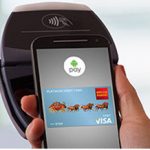Ever since Apple Pay emerged in 2014, experts have scratched their heads over the general failure of contactless mobile wallets to catch on faster with U.S. consumers. Now comes research indicating how wallet sponsors might turn things around by focusing on what consumers are most looking for in wallet services and fixing what bothers them the most.
That turnaround may be more urgently needed than ever. Not just Apple Pay, but the two other major third-party contactless wallets, Google Pay (formerly Android Pay) and Samsung Pay, are tracing a slow but definite descent in adoption among smart-phone owners, according to the latest tracking results from Phoenix Marketing International, a Rhinebeck, N.Y.-based firm that periodically checks on mobile-wallet usage.

Apple Pay leads, at 11%, but that’s down from 13% as recently as the second quarter of last year. Google Pay and Samsung Pay both register at 6%, but both are down several percentage points across the two years. All three show what Phoenix characterizes as “signs of slippage” across the last half of 2017. The firm’s latest report is its 14th quarterly survey. Device owners linking debit cards, however, were not tracked.
Device owners who have linked a credit card and used the service at stores report they are still encountering problems that many in the industry may have assumed were solved. Asked what factors would get them to use one of the Pays more often, most, 38%, cited faster transaction times, indicating issues with contactless connections at the point of sale. Indeed, the next-highest factor, at 33%, involved “confidence the terminal would work every time.” While the conversion to EMV chip cards has led most merchants to install new POS devices with contactless capability, that function remains latent in many cases.
Applying credit card rewards (32%) and receiving discounts or offers (29%) also turned out to be popular inducements for these users. Surprisingly, order-ahead capability came in last, at 20%, even though many restaurant chains have adopted this function in a bid to attract mobile-oriented customers.
Problems at checkout, though perhaps seen as a prosaic issue, remain a big barrier to usage, says Leon Majors, a senior vice president at Phoenix. He says 52% of Apple Pay users still report having problems at checkout. That’s down from 66% when Apple Pay debuted, but, as Majors says, it’s “still more than half.”
Indeed, acquirers, wallet sponsors, and merchants may have chipped away at barriers to usage, but “all of the reasons [for not using a Pay] are the same as they were two years ago,” Majors told an audience this week when he presented Phoenix’s research at the NACHA Payments conference in San Diego. Problems with the POS terminal were not the only difficulty users cited. Some 48% said cashiers were “unable to help,” indicating a training issue, and 31% reported “transactions posted incorrectly.”
In the end, what consumers are looking for, Majors says, is not more apps but better messaging. Some 54% of Pays users agree with the statement “I already have more apps on my smart phone than I can possibly use.”
For its latest tracking survey, Phoenix talked to 23,700 respondents 18 and older who have a general-purpose credit or charge card for personal use. Some 4,301 respondents had linked a credit or debit card to one or more of the Pays, and of these 3,371 had used a credit card to make a card-present transaction.




